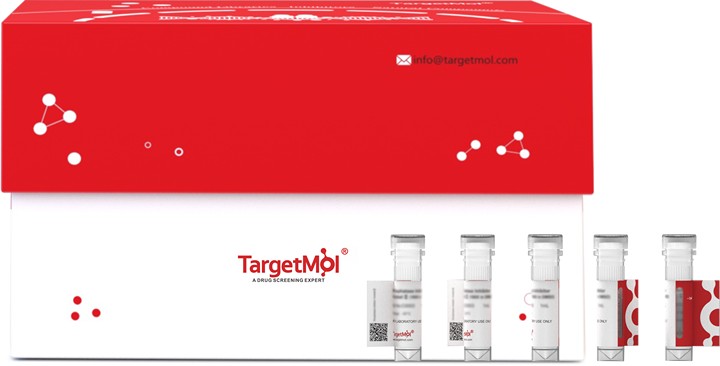Shopping Cart
Remove All Your shopping cart is currently empty
Your shopping cart is currently empty
Adiponectin Protein, Mouse, Recombinant is expressed in E. coli. The accession number is Q60994.

| Pack Size | Price | USA Warehouse | Global Warehouse | Quantity |
|---|---|---|---|---|
| 5 μg | $85 | 7-10 days | 7-10 days | |
| 10 μg | $138 | 7-10 days | 7-10 days | |
| 20 μg | $222 | 7-10 days | 7-10 days | |
| 50 μg | $423 | 7-10 days | 7-10 days | |
| 100 μg | $736 | 7-10 days | 7-10 days | |
| 200 μg | $1,280 | 7-10 days | 7-10 days | |
| 500 μg | $2,680 | 7-10 days | 7-10 days | |
| 1 mg | $4,750 | 7-10 days | 7-10 days |
| Biological Activity | ED 50 < 5.0 µg/ml, measured by a cell growth inhibitory assay using M1 cells, corresponding to a specific activity of > 2.0 × 10 2 units/mg. |
| Description | Adiponectin Protein, Mouse, Recombinant is expressed in E. coli. The accession number is Q60994. |
| Species | Mouse |
| Expression System | E. coli |
| Tag | Tag Free |
| Accession Number | Q60994 |
| Synonyms | GBP-28,Apm-1,Acrp-30 |
| Construction | Val21-Asn247 |
| Protein Purity | > 95% as determined by SDS-PAGE; > 95% as determined by HPLC |
| Molecular Weight | ~24.6 kDa (Reducing conditions) |
| Endotoxin | < 0.2 EU/μg of protein as determined by the LAL method. |
| Formulation | Lyophilized from a 0.2 μm filtered solution in PBS. |
| Reconstitution | Reconstitute the lyophilized protein in sterile deionized water. The product concentration should not be less than 100 μg/ml. Before opening, centrifuge the tube to collect powder at the bottom. After adding the reconstitution buffer, avoid vortexing or pipetting for mixing. |
| Stability & Storage | Upon receiving, this product remains stable for up to 6 months at lower than -70°C. Upon reconstitution, the product should be stable for up to 1 week at 4°C or up to 3 months at -20°C. For long term storage it is recommended that a carrier protein (example 0.1% BSA) be added. Avoid repeated freeze-thaw cycles. |
| Shipping | In general, Lyophilized powders are shipping with blue ice. Solutions are shipping with dry ice. |
| Research Background | Adiponectin is a hormone mainly produced by adipocytes. Adiponectin forms a homotrimer and exists as higher order multimers in vivo. The receptors of Adiponectin are seven transmembrane G protein coupled receptors: Receptor 1 is expressed in skeletal muscle and Receptor 2 in liver. Adiponectin receives a lot of attention because of its anti-diabetic, anti-atherosclerotic, and anti-inflammatory properties. Adiponectin increases the expression of molecules involved in fatty acid transport, combustion of fatty acid, and energy dissipation, and increases insulin sensitivity of the body. Decreased levels of Adiponectin are associated with hypertension, cardiovascular diseases, and metabolic syndromes. Therefore, Adiponectin has promising potential as a pharmacological agent. |
| Size | Quantity | Unit Price | Amount | Operation |
|---|

Copyright © 2015-2026 TargetMol Chemicals Inc. All Rights Reserved.